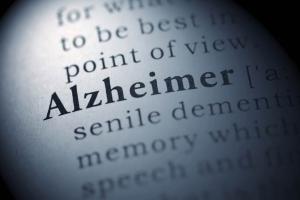The findings showed that the common over-the-counter medication decreases amyloid plaque -- major signs of Alzheimer's disease -- pathology in mice by stimulating lysosomes -- the component of animal cells that help clear cellular debris

Representational Image
Administering low-dose aspirin -- a commonly used medication to treat pain, fever, or inflammation -- may help in reducing plaques in the brain, reducing Alzheimer's disease pathology as well as protecting memory, reveals a study led by Indian-origin researcher.
ADVERTISEMENT
The findings showed that the common over-the-counter medication decreases amyloid plaque -- major signs of Alzheimer's disease -- pathology in mice by stimulating lysosomes -- the component of animal cells that help clear cellular debris.
"The study identifies a possible new role for one of the most widely used, common, over-the-counter medications in the world," said senior author and lead research investigator Kalipada Pahan from Department of Neurological Sciences, Rush Medical College.
"The research adds another potential benefit to aspirin's already established uses for pain relief and for the treatment of cardiovascular diseases," Pahan said.
In the study, published in Journal of Neuroscience, the team gave aspirin orally for a month to genetically modified mice with Alzheimer's pathology, then evaluated the amount of amyloid plaque in the parts of the brain affected most by Alzheimer's disease.
The results showed that the aspirin medications augmented TFEB -- a protein considered as the master regulator of waste removal, stimulated lysosomes and decreased amyloid plaque pathology in the mice.
"Understanding how plaques are cleared is important to developing effective drugs that stop the progression of Alzheimer's disease," Pahan explained.
However, experts have questioned the potential of aspirin, citing the failure of several major recent human trials into drugs that reduce amyloid plaques.
"A number of compounds have achieved this level of amyloid reduction in mice, yet have subsequently failed in clinical trials in humans," Clive Ballard, from the University of Exeter, was quoted as saying to the newatlas.com.
"The failures may be as a result of the differences between Alzheimer mice and human pathology, and the poor translation of benefits into humans," he said.
Moreover, in human clinical trials, the drug was found to have "no beneficial effects on outcome measures and was associated with an increased risk of gastrointestinal haemorrhage," noted Rob Howard, from the University College London.
Catch up on all the latest Crime, National, International and Hatke news here. Also download the new mid-day Android and iOS apps to get latest updates
 Subscribe today by clicking the link and stay updated with the latest news!" Click here!
Subscribe today by clicking the link and stay updated with the latest news!" Click here!






